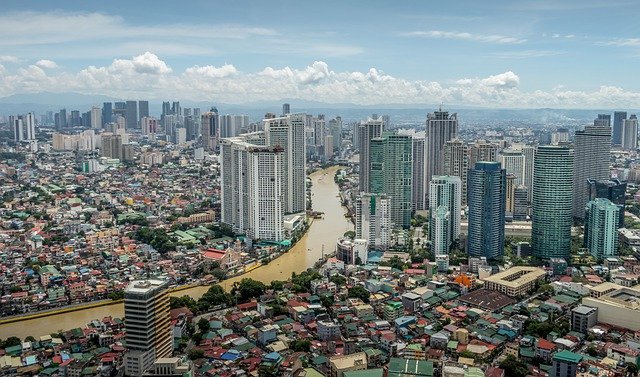
- The Inter-Agency Task Force for the Management of Emerging Infectious Diseases approved the de-escalation of Metro Manila to Alert Level 2 from Alert Level 3 starting November 5 until 21, 2021
- Restaurants and eateries would now be allowed to operate at 50% of indoor capacity for fully vaccinated individuals and those below 18 years of age, even if unvaccinated. They may also operate at 70% outdoor venue capacity
- Starting December 1, 2021, alert level assignments will be determined every 15th and 30th of the month
The Inter-Agency Task Force for the Management of Emerging Infectious Diseases (IATF) has approved the de-escalation of Metro Manila to Alert Level 2 from Alert Level 3 starting November 5 until 21, 2021.
This is a departure from the earlier decision to keep Metro Manila under Alert Level 3 from November 1 to 14.
Alert Level 2 is imposed on an area where case transmission is low and decreasing, healthcare utilization is low, or case counts are low but increasing, or case counts are low and decreasing but total bed utilization rate and intensive care unit utilization rate are increasing.
Intrazonal and interzonal movement is allowed but reasonable restrictions may be imposed by local government units (LGU), which should not be stricter than those prescribed under higher alert levels.
Restaurants and eateries would now be allowed to operate at 50% of indoor capacity for fully vaccinated individuals and those below 18 years of age, even if unvaccinated. They may also operate at 70% outdoor venue capacity.
The guidelines apply to venues for meetings, incentives, conferences and exhibitions; permitted venues for social events; visitor or tourist attractions, such as libraries, museums, galleries, parks and public gardens; amusement parks and theme parks; recreational venues, such as internet cafes and amusement arcades; cinemas and movie houses; in-person religious gatherings and gatherings for necrological services and wakes.
Those are also be the rules for limited in-person classes for higher education and for technical-vocational training; licensure examinations administered by government agencies; film, music and television production; contact sports approved by the local government where the games would be held; funfairs or kid amusement industries; venues with live voice or wind-instrument performers, such as karaoke bars and concert halls; and gatherings with individuals not belonging to the same household.
Certain business establishments in areas under Alert Level 2 awarded Safety Seal Certifications will be allowed to operate at an additional 10% beyond the prescribed on-site or venue/seating capacity, whichever is applicable.
Metropolitan Manila Development Authority chairman Benhur Abalos on Nov 5 said minors are now also allowed inside malls in Metro Manila after Metro Manila’s shift to Alert Level 2 although LGUs may on their own require additional rules including requiring parents and guardians to accompany minors in malls.
Since September 16 Metro Manila has been the pilot area for the alert level system, which is the government’s new community quarantine classifications for dealing with COVID-19, and covers entire cities, municipalities and/or regions. The alert system aims to manage and minimize the risk of disease transmission through the use of system indicators, triggers, and thresholds as determined by the IATF.
The system’s pilot implementation has been expanded to several other areas since October 20.
The IATF, meanwhile, also approved the recommendation of the sub-technical working group on data analytics to base the alert level assignments on data that is nearest to the implementation date.
Starting December 1, 2021, alert level assignments will be determined every 15th and 30th of the month. Escalations, on the other hand, may be done at any time in the middle of the implementation period as warranted, while de-escalations can only be done at the end of the two-week assessment period.
The IATF likewise directed the National Task Force Against COVID-19, together with the Regional Task Forces and Regional IATFs, to provide weekly feedback to the task force on the progress of implementation in all areas identified for alert level system roll-out.




